Burning Tongue Symptom Checker
How It Works
Select your symptoms and lifestyle factors to identify the most likely causes of your burning tongue. This tool is for informational purposes only and doesn't replace professional medical advice.
Key Takeaways
- Burning tongue is often linked to deficiencies, diabetes, allergies, or irritation.
- Simple blood tests can spot B12 or iron shortfalls.
- Adjusting diet, quitting smoking, and proper oral hygiene relieve most cases.
- Severe or persistent pain should trigger a doctor visit for deeper testing.
- Early lifestyle tweaks can prevent the sensation from becoming chronic.
When your tongue feels like it’s on fire, you might be experiencing burning tongue, also called burning mouth syndrome. It’s a chronic sensation of heat, tingling, or pain on the tongue, lips, palate, or whole mouth without a clear external cause.. This uncomfortable feeling can range from a mild warmth to a sharp, scalding pain that interferes with eating, speaking, and sleep.
What Exactly Is Burning Tongue?
The condition isn’t a disease itself; it’s a symptom that points to underlying issues. While some people experience it temporarily after eating spicy foods, others endure it for months or years. In medical literature, the term “burning mouth syndrome” is often used when the feeling spreads beyond the tongue.
Common Culprits Behind the Burn
Below are the most frequently reported reasons for a fiery tongue.
1. Nutrient Deficiencies
Vitamin B12 deficiency (normally 200-900 pg/mL) can lead to nerve irritation, causing a burning sensation.. Low levels are common in vegans, older adults, and people on certain stomach‑acid‑reduction meds.
Iron deficiency (ferritin < 30µg/L) frequently shows up as glossitis, which feels like a hot, sore tongue.. Women with heavy menstrual cycles are especially at risk.
2. Systemic Conditions
Diabetes mellitus (HbA1c ≥ 6.5%) can damage tiny nerves in the mouth, creating a persistent burning feeling.. Fluctuating blood sugar often worsens the symptom.
3. Medication Side Effects
Medication‑induced oral irritation Common culprits include ACE inhibitors, antihistamines, and some antidepressants.. The sensation may appear weeks after starting a new prescription.
4. Infections & Oral Health Issues
Oral candidiasis A yeast overgrowth that can coat the tongue, leading to soreness and a burning feeling.. Often seen in immunocompromised patients or those using inhaled steroids.
Glossitis Inflammation of the tongue’s papillae, sometimes caused by allergies or irritants, produces a hot, raw sensation..
5. Lifestyle Irritants
Smoking Delivers nicotine and tar directly to oral tissues, desensitizing nerves and often triggering a burning feeling..
Heavy alcohol use, excessive coffee, and very hot foods can act as secondary irritants, especially if the tongue is already sensitized.
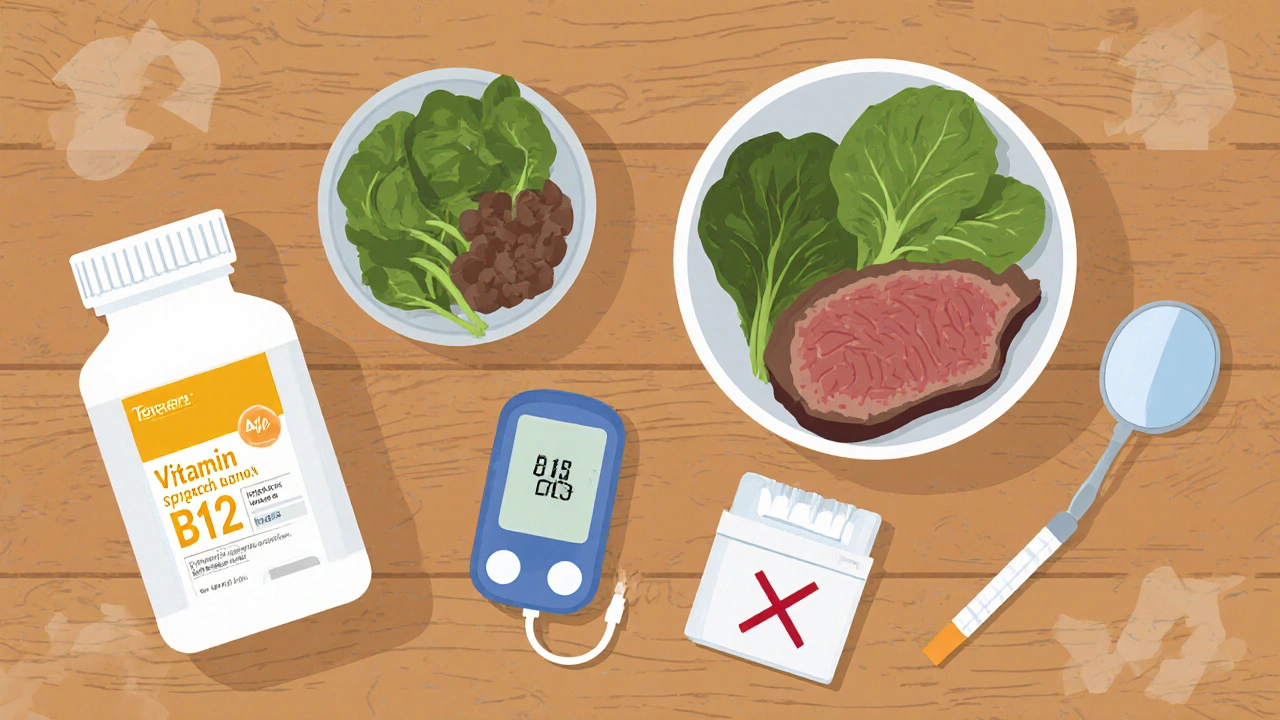
When to Seek Professional Help
If the burning lasts more than two weeks, is accompanied by ulcers, facial swelling, or a metallic taste, schedule a dental or medical appointment. Doctors may order blood panels for B12, folate, iron, thyroid function, and glucose. A saliva test can rule out fungal overgrowth, while a thorough oral exam checks for hidden lesions.
Treatment Roadmap
The best approach mixes targeted therapy with lifestyle tweaks. Below is a quick‑reference table that lines up the most common causes with first‑line treatments.
| Cause | Typical Symptom | First‑Line Treatment |
|---|---|---|
| Vitamin B12 deficiency | Sharp, intermittent burning; occasional numbness | Oral cyanocobalamin 1,000µg daily or monthly injection |
| Iron deficiency | Sore, glossy tongue; fatigue | Ferrous sulfate 325mg 2‑3×/day with vitamin C |
| Diabetes‑related neuropathy | Constant low‑grade heat, worse after meals | Optimized glucose control + alpha‑lipoic acid 600mg BID |
| Medication side effects | Burning appears after new drug start | Discuss alternatives with prescriber; topical lidocaine gel |
| Oral candidiasis | White patches, soreness, burning | Topical nystatin suspension 5ml swish‑spit QID |
| Glossitis (allergic/irritant) | Red, smooth tongue surface | Avoid trigger; mild steroid rinse (dexamethasone 0.5mg/5ml) |
| Smoking | Chronic heat, bad breath | Smoking cessation program + nicotine replacement |
Practical Tips You Can Start Today
- Boost B12‑rich foods: clams, fortified cereals, and dairy. Consider a supplement if you’re vegan.
- Include iron‑dense options like lean beef, lentils, and spinach; pair with vitaminC to improve absorption.
- Keep blood sugar stable: low‑glycemic carbs, regular exercise, and routine glucose checks.
- Switch to alcohol‑free mouthwash; avoid harsh toothpastes with sodium lauryl sulfate.
- Stay hydrated - dry mouth amplifies burning sensations.
- Quit smoking using behavioral counseling or prescription aids (varenicline, bupropion).
- If you suspect a medication, never stop it cold‑turkey - talk to your doctor first.

What Not to Do
Avoid self‑diagnosing with over‑the‑counter “cure‑all” lozenges that contain high‑dose menthol; they can further irritate nerve endings. Likewise, steer clear of extremely hot or acidic foods until the tongue calms down.
Bottom Line
While a burning tongue can feel alarming, most cases trace back to a handful of manageable causes. Blood work, a quick oral exam, and a few lifestyle adjustments often put the fire out. If symptoms linger despite these steps, a specialist-such as an oral medicine doctor-can explore rarer neurologic or autoimmune possibilities.
Frequently Asked Questions
Can stress cause a burning tongue?
Yes. Stress can trigger dry mouth and alter saliva composition, which may heighten sensitivity and mimic burning sensations. Managing stress through mindfulness or therapy often reduces the feeling.
Is burning mouth syndrome the same as burning tongue?
Burning mouth syndrome (BMS) is a broader term that includes burning of the tongue, lips, palate, and even the whole mouth. When only the tongue is affected, clinicians often refer to it simply as burning tongue.
How long does it take for B12 supplements to relieve the burning?
Most patients notice improvement within 2-4 weeks of daily oral supplementation, though full resolution may take up to three months, especially if the deficiency was severe.
Can a dentist diagnose the cause?
Dentists can rule out oral infections, dental hardware irritation, and visible lesions. They often refer patients to a primary‑care physician for blood work when systemic causes are suspected.
Is there any home remedy that works?
A gentle rinse of warm water with a pinch of baking soda, followed by honey (if not diabetic) can soothe the tongue. These measures are supportive, not curative, and should accompany the underlying treatment.

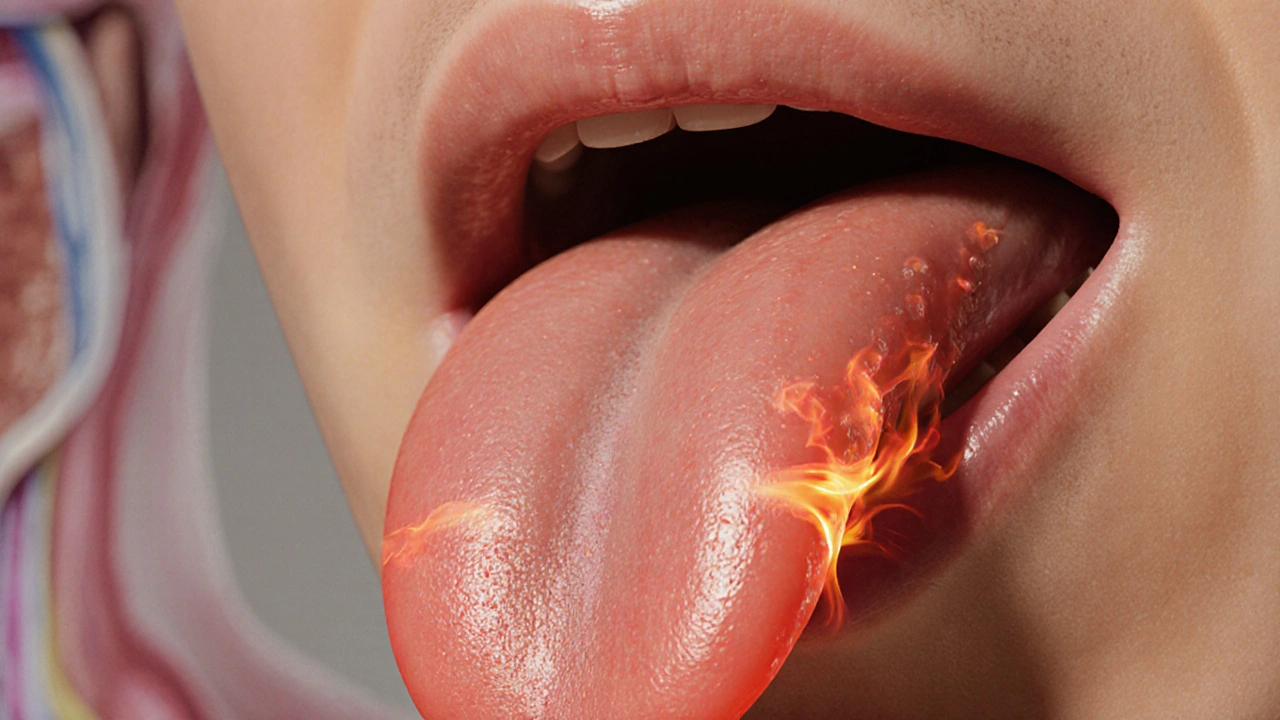
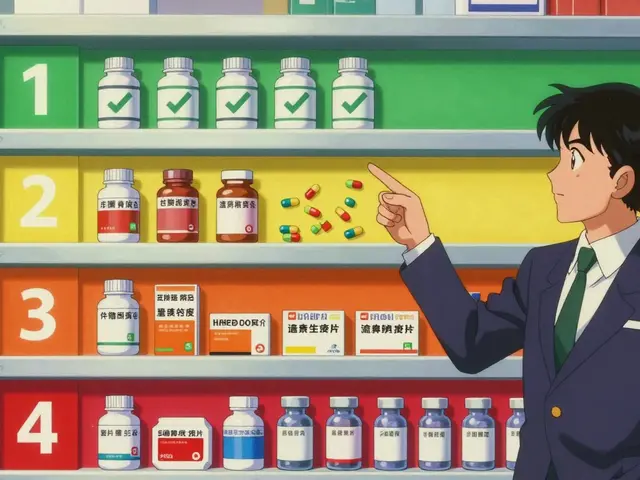
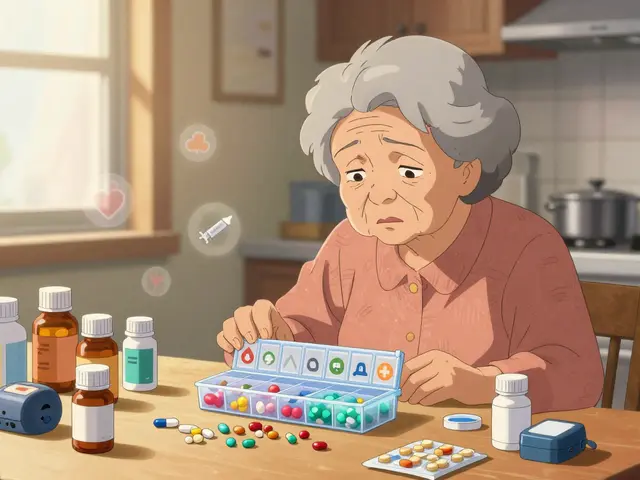
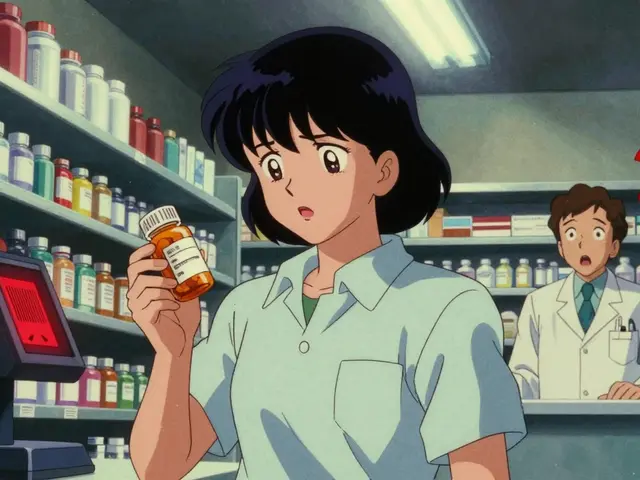
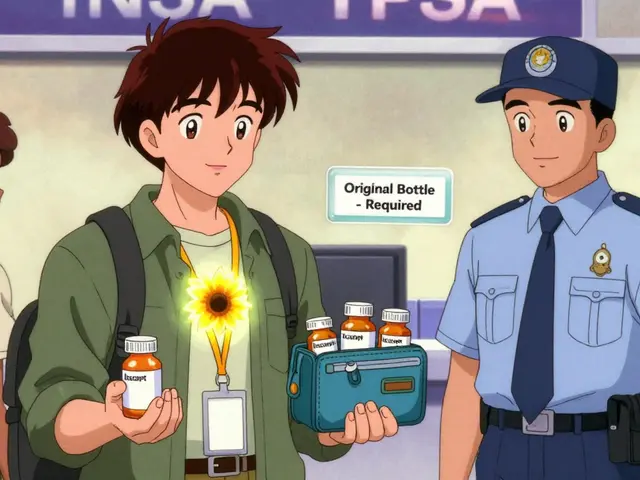

Sen Đá
October 13, 2025 AT 15:50Burning tongue, medically designated as burning mouth syndrome when it extends beyond the lingual surface, is a symptom that frequently betrays underlying systemic deficiencies or neuropathic disturbances. Primary among these is a deficit of vitamin B12, whose role in myelin synthesis and neuronal health is unequivocally established; deficiency precipitates demyelination that manifests as a persistent, often intermittent, burning sensation. Equally consequential is iron deficiency, which compromises hemoglobin synthesis and can engender glossitis, thereby exposing the papillae to irritative stimuli. Diabetes mellitus introduces a further dimension, whereby chronic hyperglycemia induces microvascular degeneration and peripheral neuropathy, which readily includes the oral mucosa. Pharmacologic agents, notably ACE inhibitors, antihistamines, and certain antidepressants, exert iatrogenic mucosal irritation through alterations in salivary composition and mucosal integrity.
In addition to these etiologies, xerostomia-dry mouth-exacerbates the perception of heat by diminishing the protective lubricating film that ordinarily buffers mechanical and chemical insults. Lifestyle contributors such as tobacco use and excessive alcohol consumption inflict chronic mucosal irritation, potentiating the neurogenic fire. The clinician’s diagnostic algorithm should commence with a thorough dietary and medication review, followed by targeted laboratory assays encompassing serum B12, ferritin, folate, and HbA1c levels.
Therapeutically, oral cyanocobalamin supplementation, conventionally 1,000 µg daily or administered via intramuscular injection at monthly intervals, frequently ameliorates B12‑related burning within weeks. Iron repletion, administered as ferrous sulfate accompanied by vitamin C to enhance absorption, mitigates glossitis and associated discomfort. Optimizing glycemic control through diet, exercise, and pharmacotherapy curtails diabetic neuropathic pain, while adjunctive alpha‑lipoic acid has demonstrated analgesic benefit.
For medication‑induced cases, a coordinated deprescribing strategy, in concert with the prescribing physician, is essential; topical lidocaine gels may provide interim symptomatic relief. Antifungal therapy, such as nystatin swish‑spit, is indicated when candidiasis is identified. Behavioral interventions-including smoking cessation programs, reduction of alcohol intake, and the use of non‑irritating oral hygiene products-constitute indispensable components of long‑term management.
Patients should be counseled to avoid provocatively hot or acidic foods, as well as over‑the‑counter lozenges containing high concentrations of menthol, which can perpetuate neural hyperexcitability. Adequate hydration and the adoption of alcohol‑free mouth rinses further support mucosal recovery. Should symptoms persist beyond a reasonable therapeutic window, referral to an oral medicine specialist is warranted to explore rarer neuropathic or autoimmune etiologies.
LEE DM
October 14, 2025 AT 19:37Great rundown-adding to that, a quick tip: swapping to a B‑complex that contains methylcobalamin can sometimes speed up relief, especially if you’re vegan.
Shaik Basha
October 15, 2025 AT 23:23Yo, if you’re chugging a lot of coffee or tea, cut back a bit. Those caffeine hits can dry you out and make the fire worse, trust me.
Michael Ieradi
October 17, 2025 AT 03:10Stay hydrated.
Sarah Seddon
October 18, 2025 AT 06:57Imagine your tongue as a tiny, delicate canvas-when it’s scorched, every bite feels like a brushstroke of pain. A splash of honey (if you’re not diabetic) can coat and soothe, while a gentle rinse of warm salt water calms the inflamed terrain. Think of B12 as the master painter restoring color; a daily dose can bring the masterpiece back to life.
Ari Kusumo Wibowo
October 19, 2025 AT 10:43Listen, if you’ve started a new prescription and the tongue’s on fire, don’t just grind your teeth-call your doc and ask for a switch. That irritation won’t vanish on its own.
Hannah Gorman
October 20, 2025 AT 14:30When one examines the phenomenon of a burning tongue, it becomes evident that the superficial discomfort belies a confluence of physiological derangements, ranging from micronutrient insufficiencies to complex neurovascular impairments. The propensity for such a symptom to be dismissed as trivial belies its capacity to undermine nutritional intake, thereby initiating a vicious cycle of worsening deficiency. Moreover, the psychosocial ramifications, including diminished quality of life and heightened anxiety, warrant a multidisciplinary approach. Accordingly, a comprehensive assessment encompassing dietary habits, pharmacologic exposures, and systemic disease markers is imperative. Only through such rigor can clinicians orchestrate an effective remedial regimen, integrating supplementation, lifestyle modification, and, where indicated, specialist referral.
Tatiana Akimova
October 21, 2025 AT 18:17Bottom line: hydrate, quit smoking, and get those labs done. Simple steps, big impact.
Calandra Harris
October 22, 2025 AT 22:03Americans love to over‑complicate a simple deficit; the truth is a B12 pill works, no need for fancy quackery.
Dan Burbank
October 24, 2025 AT 01:50One must consider the epistemological foundations of our diagnostic criteria; the prevailing reliance on serum B12 thresholds, while convenient, may obscure subclinical insufficiencies that manifest primarily as oral neuropathic pain. Thus, a critical re‑evaluation of clinical heuristics is warranted, lest we perpetuate a paradigm that marginalizes the patient’s lived experience.
Anna Marie
October 25, 2025 AT 05:37In response to the preceding observation, I would emphasize that while laboratory values are indispensable, they should be integrated with thorough patient histories and symptomatology to formulate a holistic management plan.